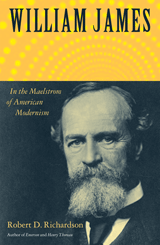 |
| Hallie Flanagan |
Apart from books I've read or am reading for review: I've almost finished Robert D. Richardson's biography, William James: In the Maelstrom of American Modernism (Houghton Mifflin.) Richardson is truly a pleasure to read, and he sets a very high bar for biographies. He's an example to be emulated, and I simply don't know of a better biographer. Having read his two books on Emerson, I've purchased his biography of Thoreau.
 |
| Sherwood Anderson |
I've also been reading Poor White, a novel by Sherwood Anderson, and The Colossus of Maroussi by Henry Miller. Both are interesting for the writing and for the sense of the times they portray. I'm not sure I'm going to finish either of them soon, however.
 |
| Sinclair Lewis |
But that same library still had some other books on the topic, including Arena, the memoir by the Federal Theatre Project's heroic administrator, Hallie Flanagan. We've had our reading, I made my speech, and posted a lot on Federal Theatre on my Stage Matters site, but I'm still reading Arena. A couple of other books I found very valuable are Voices From the Federal Theatre (Bonnie Nelson Schwartz and the Educational Film Center, published by the U. of Wisconsin, and which includes a DVD of a television documentary) and Free, Adult, Uncensored: The Living History of the Federal Theatre Project, edited by John O'Connor and Lorraine Brown (New Republic Books, 1978.) This latter book, which I purchased used, has a wealth of wonderful illustrations, some but not all of which can be found online. This is a disturbingly neglected subject--few people know about the Federal Theatre and what it accomplished, including theatre people. But the audience last night was very interested.
I also read most of the novel It Can't Happen Here (Lewis co-wrote the play for the Federal Theatre, and later rewrote it himself for several commercial runs.) The novel is much more wrapped up in its time, stated as happening in 1936, and using some names of real people. The character I read has three important scenes throughout the play, but in the novel I saw that he's referred to just once, as being sent to a concentration camp. That's where I stopped reading. How like an actor already! The play is virtually unknown now, but despite some dated language and its melodramatic qualities, it's worthy of revival, especially for uncomfortable similarities to today.
Finally, in a bookstore I saw a new edition of F. Scott Fitzgerald's Tender is the Night, emblazoned with the words "Vintage Fitzgerald." Well, what other kind is there? Anyway, I picked it up and read the first paragraph, and now I'm reading one of the copies from my shelves--though not the one I marked up in college, which I still have. Fitzgerald was a particular favorite and writing model then, though I haven't re-read him in years, maybe not since then or shortly after. So I'm looking forward to it. And resuming my voyage through Vonnegut.

No comments:
Post a Comment